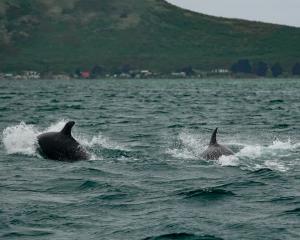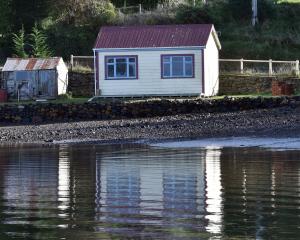
Te Rūnanga o Ngāi Tahu kaiwhakahaere Justin Tipa said the changes to the Bill were "absolutely unacceptable".
"The situation is not only detrimental to our health and our cultural practices, but also the legacy that we leave.
"There’s already ecosystems and freshwater bodies that are unsafe for swimming, let alone harvesting for food."
The first reading in Parliament of the proposed Resource Management Amendment Bill took place last Tuesday.
The Bill would dismantle efforts within the Resource Management Act 1991 to keep fresh waterways clean by excluding Te Mana o te Wai hierarchy of obligations needed to be met for resource consent, Mr Tipa said.
"The pollution of these waterways — it has severe implications for our daily lives, whether that’s making water unsafe for drinking, recreation, food gathering — all of these things that need to be taken into account.
"Polluting our waterways benefits no-one and we reject any assertion that the hierarchy needs to be rebalanced."
Te Mana o te Wai hierarchy recognised the link between freshwater health and human health, the Ministry for the Environment reported.
The health of the water was the first priority and the health of communities and access to safe drinking water came in second.
Use of freshwater for commercial purposes was the last priority.
He said removing this hierarchy was "not good for anything".
"By having the hierarchy, it compels people to take into account the health of fresh water as part of the impacts of their development.
"You’re essentially removing protections for waimāori and that’s not good for the environment, or our reputation internationally."
Mr Tipa said Te Mana o te Wai helped mana whenua protect the environment.
"Everything in our natural environment as Māori, we have a genealogical connection to and inherent responsibility to protect.
"Our relationship with wai is one of whakapapa."
Te Mana o te Wai had garnered support from stakeholders such as local government, industry, farmers and environmental groups, Ngāi Tahu said.
"Ngāi Tahu takes the health of our waterways very seriously.
"But also we want to see development and economic growth in the regions where that makes sense.
Mr Tipa explained if the Bill passed, Ngāi Tahu would continue to exercise their rangatiratanga (authority) over the waterways and would "fight for the health of our waters".
"If it remains, we reserve the right to take any necessary action to safeguard our freshwater resources."












